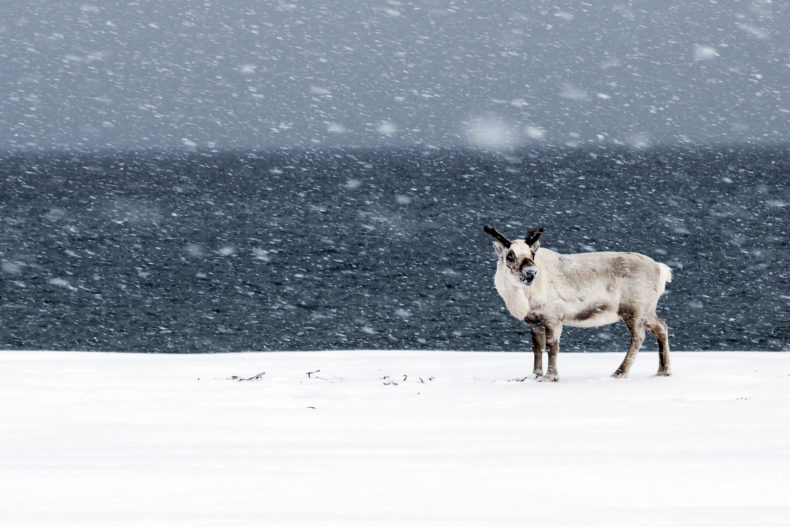 The Svalbard archipelago, midway between continental Norway and the North Pole, is famous for its polar bears, but it is also home to the distinctive (and distinctively adorable) Svalbard reindeer. Shaggy-haired and stubby-legged, the Svalbard reindeer is not only the world’s smallest subspecies of reindeer but also the world’s northernmost herbivorous mammal, and its survival is something of a daily miracle.
The Svalbard archipelago, midway between continental Norway and the North Pole, is famous for its polar bears, but it is also home to the distinctive (and distinctively adorable) Svalbard reindeer. Shaggy-haired and stubby-legged, the Svalbard reindeer is not only the world’s smallest subspecies of reindeer but also the world’s northernmost herbivorous mammal, and its survival is something of a daily miracle.
Winter vegetation on Svalbard is sparse to begin with, and because winter temperatures regularly rise above freezing, any greenery is usually covered with ice. So between April and late August, when the Arctic sun shines all day and vegetation grows round the clock, Svalbard reindeer eat frantically, laying on fat for the months ahead. When winter descends, they enter a state that’s not quite hibernation—they stay alert, and their body temperature stays constant—and not quite torpor, for their metabolic rate doesn’t change much. They just … stop moving. Norwegian zoologist Arnoldus Blix has dubbed this curious state “arctic resignation.”
I first encountered the term arctic resignation in The Noonday Demon by Andrew Solomon, a book I revere (and recommend to everyone, regardless of your brain chemistry). Solomon observes that arctic resignation looks like some varieties of human depression, and it’s true: in addition to spending almost all of their time lying down or standing still, arctically resigned reindeer have low thyroid hormone levels and eat almost nothing. But depression tends to make easy situations hard, and hard situations impossible. Arctic resignation, on the other hand, makes a ridiculously difficult environment survivable. It’s a strategic response to unwelcome but temporary conditions.
Like scale mismatch, arctic resignation strikes me as a strategy that can be applied to all sorts of difficulties. When times are tough, reduce your overhead; get plenty of rest; stay alert; and, when absolutely necessary, trot. When the sun returns, eat to your heart’s content.
Photo of presumably resigned Svalbard reindeer by Flickr user Christopher Michel. Creative Commons.